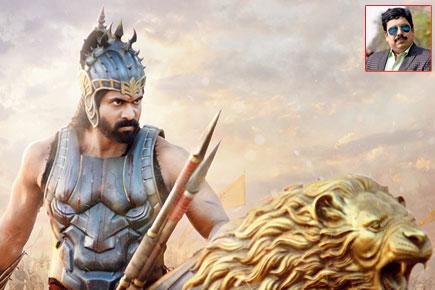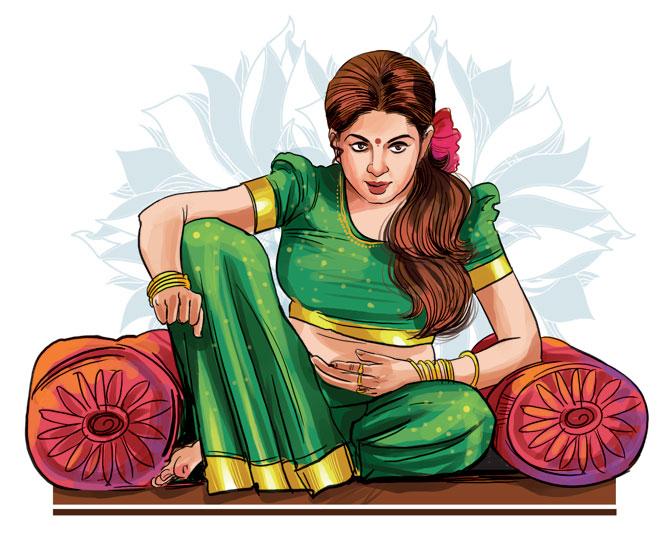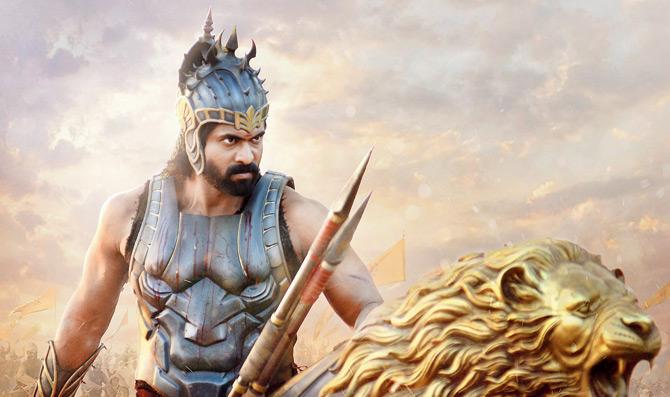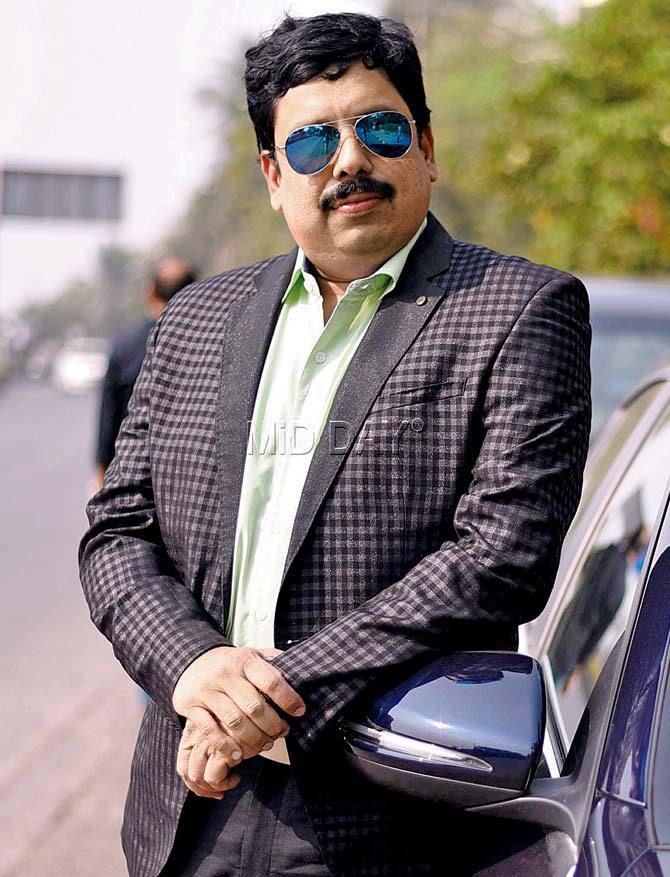Writer Anand Neelakantan, who has penned the historical Bahubali novel, tells us why he doesn't want to be India's Tolkien or RR Martin

Anand Neelakantan

Anand Neelakantan's first book in the Bahubali trilogy traces the story of Queen Mother Sivagami's rise to power from the time she was 17. Sivagami is touted to be one of the most iconic and enigmatic characters in the story. Illustration/Uday Mohite
ADVERTISEMENT
It's a sweltering afternoon in Bandra and we are seated in the cool confines of a cafe when a steel blue Mercedes halts right outside. Writer Anand Neelakantan, who is on the driver's seat, steps out and after a quick exchange of pleasantries, pushes forth a request: "Could we do the interview in the car, instead? It will save me towing trouble."
We peep inside and wonder if we ever needed any convincing.But, a year ago, Neelakantan did. Not to sit inside this luxury car — as you'd assume — but to join filmmaker SS Rajamouli's behemoth of a brand, Bahubali. "I thought it was a prank," he says recalling the call he received from Rajamouli, asking him to write a prequel to his 2015 National award-winning historical film series.

A still from Bahubali: The Beginning, which was the second highest grossing Indian film when it released in July, 2015
Just a couple of weeks shy from the release of The Rise of Sivagami (Westland), the Mumbai-based writer, best known for his debut novel Asura: Tale of the Vanquished, admits that things would have panned out differently had he rebuffed that call on his cellphone "as a prank played by a friend".

Anand Neelakantan. Pic/ Nimesh dave
Sensing Neelakantan's discomfort, Rajamouliimmediately booked him on a flight to Hyderabad for a meeting. Sitting on the filmmaker's office table was a stack of 2,000 pages of characterisation that he and his team had put together for the epic saga — the second part of the franchise, Bahubali: The Conclusion, releases in April. "He told me how all the research had potential to be converted into a great back-story to the film series," says the 43-year-old author. But, what Rajamouli was looking for was a master storyteller. And, he'd go to any lengths to find one, even if it meant putting a reputable writer like Neelakantan to test.
The author, we are told, was asked to write 20 scenes in two hours during that same visit. Rajamouli later marked an anxious Neelakantan on a scale of 10. "I managed to score seven and more for 11 of them," he says. That's the story behind how he eventually bagged the deal to write the Bahubali trilogy, the first of which releases on March 7. The third unreleased title will end where the first movie begins.
Neelakantan was given 100 days to complete the first book, which meant wrapping up his television writing projects (Siya Ke Ram, Chakravarthin Ashoka and Hanuman among others) before single-mindedly focusing on creating a storyboard with new characters and a plot that would take readers through the story of the Queen mother, Sivagami Devi, wife of Bijjala Deva and sister-in-law to Amarendra Bahubali's father. Forty new characters and a self-devised vocabulary inspired from Telugu, Tamil and Sanskrit find their way into Neelakantan's historical fiction. Fans of the character Bahubali might be disappointed that the warrior king does not find a mention in the first book. They can take solace in the fact that the seeds of Kattapa's reasons behind killing Bahubali are sown in this narrative. At this point, we interject him with a question we have been itching to ask. "Does he know why? "Yes," he smiles. "But I haven't even disclosed it to my wife."
At the heart of this novel is the journey of Sivagami, a 17-year-old orphan, and her rise to a position of power. But, why cherry pick Sivagami for the book? "As a storyteller, I found that she was the strongest character — even more powerful than Bahubali. Unfortunately, her character could not be fleshed out well in a three-hour film. Both, Rajamouli and I agreed that her story needed to get its due in this trilogy," he says, adding that, "She is the hero of my book."
There are several other she-heroes and villains in this novel that are central to Neelakantan's racy plot. He drops a few names: Ally (the spy woman); Kalika (a conniving devdasi); Kamakshi (a conservative, principled woman). The attempt was deliberate. "Women bring a lot of emotion and depth to a story. The story of a warrior hero might make for great cinema, but, how many pages can you possibly invest on his successes and spoils on the battlefield?" he asks. He clarifies that the book was not written as a response to critics, who slammed Rajamouli for his sexist portrayal of women. Nonetheless, the writer feels that it will definitely silence them.
With a product this huge — Bahubali: The Beginning was the second highest grossing Indian film when it released in July 2015 — Neelakantan is aware he has a responsibility on his shoulders. This is precisely why he re-wrote 80 per cent of the book, 70 days after completing the first draft in early December last year. "Some of my friends who read the book, told me that it reminded them of Lord of the Rings," he says. "That may have been a compliment, but it worried me no end. I don't want to be known as India's answer to Tolkien or RR Martin. Because Bahubali as a film captures the Indian ethos, and it should in no way, resemble a foreign book or idea."
 Subscribe today by clicking the link and stay updated with the latest news!" Click here!
Subscribe today by clicking the link and stay updated with the latest news!" Click here!







